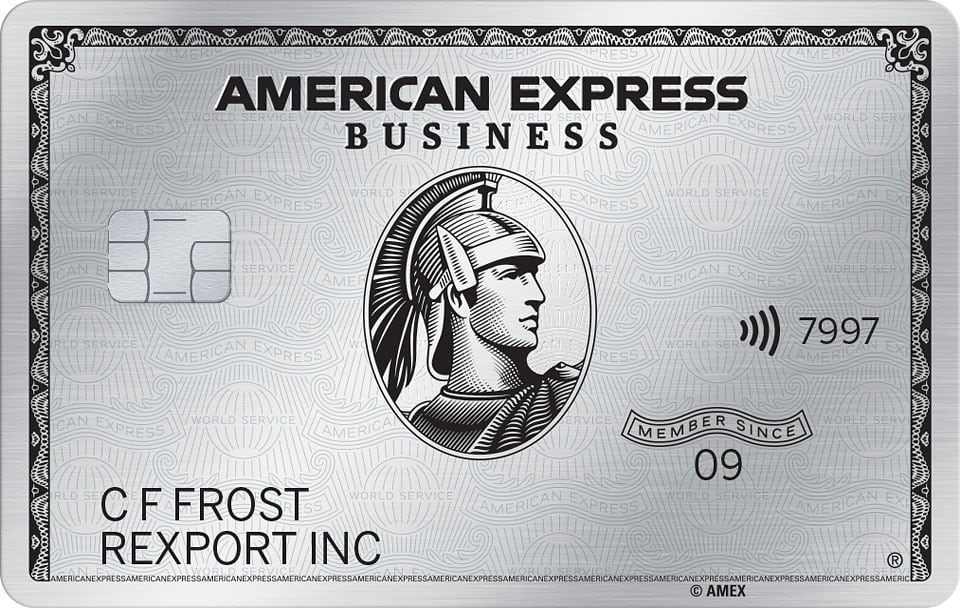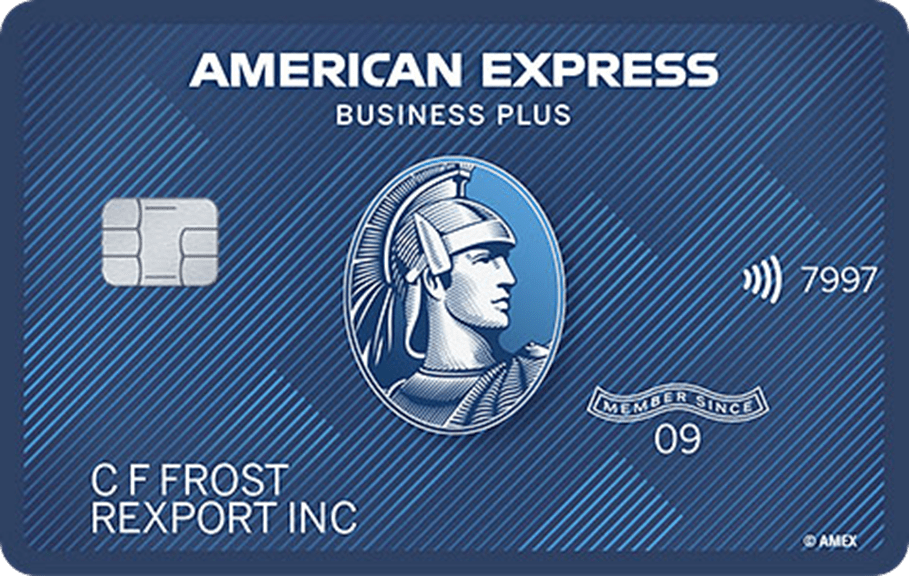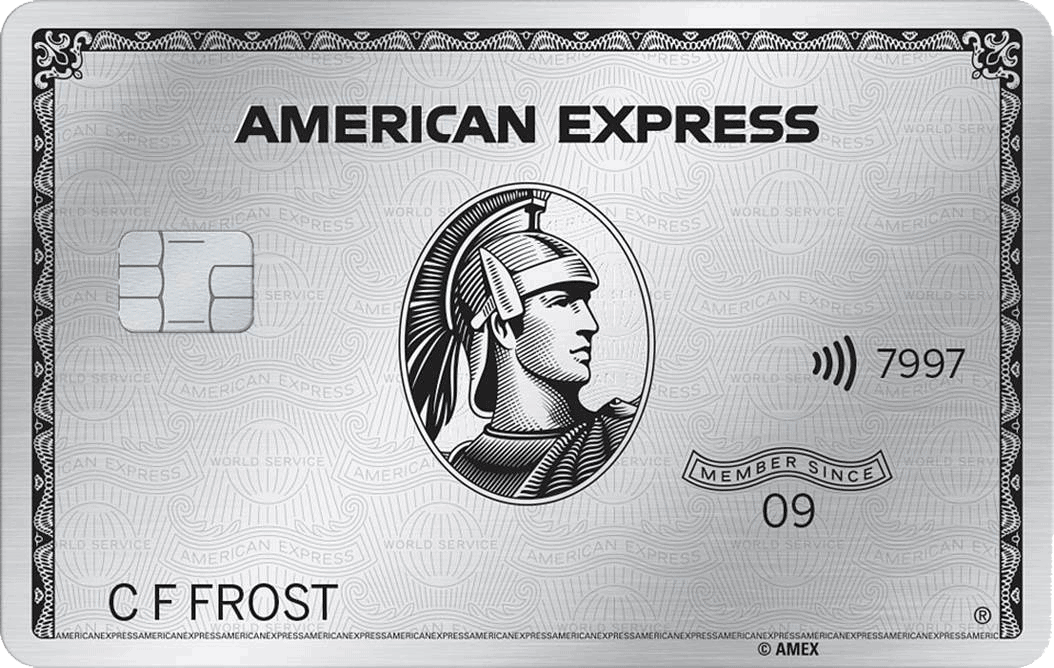MileValue is part of an affiliate sales network and receives compensation for sending traffic to partner sites, such as CreditCards.com. This compensation may impact how and where links appear on this site. This site does not include all financial companies or all available financial offers. Terms apply to American Express benefits and offers. Enrollment may be required for select American Express benefits and offers. Visit americanexpress.com to learn more.
Note: Some of the offers mentioned below may have changed or are no longer be available. You can view current offers here. All values of Membership Rewards are assigned based on the assumption, experience and opinions of the MileValue team and represent an estimate and not an actual value of points. Estimated value is not a fixed value and may not be the typical value enjoyed by card members.
Whether you’re sending yourself or a family member to college, annual tuition fees can be daunting. In the 2022-2023 school year, the average annual tuition fee was $39,400 for private universities and $10,950 for public universities (for state residents). That’s no small price to pay.
However, it’s not necessarily all doom and gloom when it comes to paying tuition. If you play your (credit) cards right, you can gain a significant number of points and miles when you pay your tuition fees with a credit card.
Let’s see how you can maximize points and miles while paying tuition and other associated college fees.
Can You Pay Tuition Fees Using a Credit Card?
Your first priority is finding out whether your prospective college offers credit cards as an available payment method. Some colleges outright don’t accept credit cards. For example, at the time of writing, Ivy League colleges don’t accept credit card payments, except for the University of Pennsylvania.
If your prospective college does accept credit card payments, the next step is finding out if they apply a credit card processing fee. Generally, credit card processing fees are usually between 1% and 3%, and this is no different for colleges.

The majority of U.S. universities that accept credit card payments apply a fee. However, there are still a few that don’t apply any fees. Currently, the following colleges don’t charge any credit card processing fees*:
- Austin Community College
- Binghamton University
- Howard University (only when studying part-time)
- Stony Brook University
- The College of Environmental Science and Forestry
- University at Albany, the State University of New York
- University at Buffalo, the State University of New York
- University of Nevada, Las Vegas
- University of Tampa
*Certain terms and conditions may apply to waive credit card processing fees at these institutions, such as belonging to a certain student category or for specific degree programs only.
This list is not exhaustive, and there are likely other U.S. colleges offering fee-free credit card payments. Many educational institutions don’t publish this information online, so it’s best to contact your college directly to find out.
These universities are absolute goldmines in terms of maximizing your points and miles return. As long as you can pay off your card’s balance within the grace period, you only benefit from paying with your credit card.
But these colleges are unfortunately few and far between. In most cases, you’ll have to pay the credit card processing fee.
That said, if you do have to pay a processing fee, you should check with your college if there’s a price difference when paying it online compared to in-person. Some colleges offer a reduced fee for in-person credit card payments. Online third-party payment processors used by colleges often charge additional fees on top of the credit card issuer’s fees, increasing the processing fee price for online payments.

Paying Tuition Fees Through a Third-Party Payment Service
If your college doesn’t accept credit card payments, don’t be disheartened. Luckily, there’s still a way you can use your credit card to pay your tuition fees.
You can take advantage of a third-party payment service, such as Plastiq.
You can pay Plastiq directly using your credit card. The service will then convert the payment to a type your college accepts, for example, a check. So you’ll be able to fund your tuition fees using your credit card and gain points, even if your college doesn’t accept credit cards as a payment method.
The only catch is that Plastiq applies its own credit card processing fee, which currently stands at 2.9%. But you’re effectively paying the same fee you’d pay if your college was to offer credit cards as a payment method and apply a processing fee, so it’s not a major drawback.
Likewise, if your university offers credit cards as an available payment method and applies a processing fee higher than 2.9%, then it would actually make financial sense to pay using Plastiq. This way you’d avoid the higher fee charged by your college by having your payment converted to a non-fee incurring type. Instead, you’d have to pay only the comparatively cheaper credit card processing fee charged by Plastiq.

The Benefits of Paying Tuition Fees with your Credit Card
If you can pay tuition fees using your credit card, should you?
Let’s take a look at the instances when, and reasons why, paying your tuition fees with a credit card could benefit you.
Take Advantage of Welcome Bonuses
Many credit cards come with competitive welcome bonuses. Sign-up offers are usually tied to a minimum amount spent over a given initial time period.
For example, perhaps your card offers a welcome bonus of 100,000 points when you spend $15,000 in the first three months.
Under normal circumstances, spending $15,000 in just three months may prove impossible given your spending habits. However, when paying annual tuition fees, reaching these minimum spending amounts becomes far more realistic.
Using your credit card for tuition payments thus becomes an easy way to rack up thousands of bonus points. Cards that offer transferable points, such as American Express Membership Rewards and Chase Ultimate Rewards, are ideal in giving you flexibility in how you redeem them.

The Business Platinum Card® from American Express (see rates and fees) could be a good choice if you’re a small business owner sending yourself or a family member to college.
The Business Platinum Card® from American Express
Welcome Offer: Earn 150,000 Membership Rewards® points after you spend $20,000 in eligible purchases on the Card within the first 3 months of Card Membership.
It earns 1.5X points on all eligible purchases of more than $5,000 (on up to $2 million of these purchases per calendar year), making it perfect for earning points on tuition fee payments. It also has typically generous welcome bonuses on offer, making it easy to earn Membership Rewards points that can be redeemed for travel perks.
Pay 0% Intro APR
Welcome bonuses are not the only lucrative introductory perks offered by credit cards. Many credit cards offer a 0% Annual Percentage Rate (APR) on payments for a fixed period of time. This can be anywhere between one and two years during which you won’t have to pay any interest on credit card payments.
Think of it this way. The average interest rate on federal and private student loans was 5.8% in the 2020-2021 academic year. If you forgo taking out a student loan and instead pay tuition fees using a credit card with 0% intro APR, the only fee you’ll have to pay is the credit card processing fee of 1% to 3%.
That’s assuming you can pay your balance before the 0% APR introductory period ends. If you don’t have the liquidity to do this, then you’ll end up paying exorbitant, double-figure interest repayments, which makes this not worth it.

However, if you can pay your balance on time, then you’ll save a significant amount of money by only paying the comparatively lower credit card processing fee instead of the higher student loan interest rate.
The Blue Business® Plus Credit Card from American Express
Earn 15,000 Membership Rewards® points after you spend $3,000 in eligible purchases on the Card within your first 3 months of Card Membership.
Meet Annual Spending Thresholds and Redeem Bonuses
Some credit cards offer annual spending thresholds. Reaching your spending threshold can come with a range of bonus perks from extra points and miles to free stays at participating hotels.
To make this worthwhile, you just need to ensure that reaching the threshold actually gains you a greater return.
For example, let’s say your credit card requires you to spend $15,000 per year to gain a 12,000-point bonus. You pay $15,000 of your tuition fee using the card and pay your college’s processing fee of 2.5%, which converts to $375 in extra payments.
If point redemption is at a rate of 1 cent per point, then the 12,000 points give you $120. In this instance, you’d lose money—$255, to be specific. However, if you’d already spent $14,000 on the card and charged only $1,000 in tuition fees on your card, then you’d pay just $25 in processing fees. In this case, you’d gain a bonus equivalent to $95.
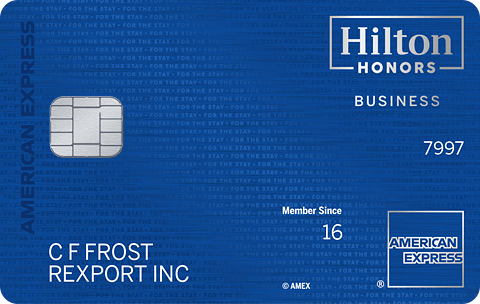
The Hilton Honors American Express Business Card
Limited Time Offer: Earn 150,000 Hilton Honors Bonus Points after you spend $8,000 in purchases on the Hilton Honors American Express Business Card in your first 6 months of Card Membership. Plus earn an additional 25,000 Hilton Honors Bonus points after you spend an additional $2,000 in purchases on your Card within your first 6 months of Card Membership. Offer Ends 8/13/2025.
Build Credit History and Earn Points on Non-Tuition Purchases
This benefit doesn’t apply only to tuition, but more broadly to all the costs associated with a college education. Paying for rent, groceries, textbooks and the many other additional costs of higher education with your credit card is a great opportunity to build your credit history and earn points.
If your child is the one attending college, this is the perfect opportunity for them to increase their credit score. They can apply for their first credit card and begin learning how to use points to their advantage. A card that earns points and miles on everyday purchases as well as recurring payments, such as subscription streaming services, is going to be your best bet.
Likewise, if your child will be studying abroad, then a card that doesn’t charge foreign transaction fees and earns points on non-U.S. purchases will be the go-to choice.
The Citi® Premier Card earns 3X points per dollar spent on gas stations, air travel, hotels, restaurants and supermarkets globally. It also doesn’t charge any foreign transaction fees, making it ideal for students abroad.

On the other hand, you could add your children as authorized users on your credit card. This way, they’ll still gain financial literacy and learn the discipline required to use a credit card, but you’ll also gain from accelerated point earning due to their additional spending. Adding an authorized user can also help you gain bonus points, depending on the credit card.
The Chase Freedom® Unlimited credit card earns 3% cash back on dining at restaurants, including takeout and eligible delivery services, and 1.5% on other eligible purchases.
The Citi® Double Cash Card is also a great choice, earning you 2% cash back on all purchases, regardless of what, where and when you buy. (With this card, you earn 1% cash back when you buy and 1% cash back when you pay.)
Considerations When Paying Tuition Fees with Your Credit Card
As you can see, paying college tuition fees with your credit card can rack you up a range of benefits. But there are some factors to consider before swiping your way to an academic degree.
Can You Make Credit Card Repayments on Time?
Despite grace periods and 0% intro APR, you’ll eventually have to pay your credit bill. In short, if you can’t make credit repayments within the introductory period, forget paying tuition fees with your credit card.
Ensuring you have enough available funds to make payments on time is key to making credit card charged tuition fees worthwhile. Most credit cards come with double-digit APR, the current average rate being between 15.56% and 22.87% in the U.S. This is far higher than the average interest rate on student loan repayments, which stands at 5.8%. Trust us. You don’t want to be on the hook for all that interest for not paying off the balance in full.

If liquidity is a problem for you, then there are better options than using a credit card for tuition fees. You could take out a student loan and pay back the comparatively lower interest rate. Alternatively, you could use a tuition payment plan to pay the balance off in installments. While tuition payment plans often come with enrollment fees, you’ll still save money compared to student loan interest repayments or credit card bills.
Keep in mind that paying tuition fees with a credit card is about maximizing points and miles. It shouldn’t necessarily be used as a quick solution if you have a lack of cash on hand.
What About Credit Card Processing Fees?
In order for it to be worth using your credit card to pay tuition fees, your return needs to be higher than the processing fees. Just as with not being able to make credit bill repayments on time, paying more in fees than you earn in points defeats the purpose of paying tuition fees with a credit card.
Let’s say you pay $39,000 in tuition fees per year—the annual average for private U.S. universities. Your college applies a processing fee of 2.5% for credit card payments, which amounts to $975 per year.
So to justify paying with your credit card, you’ll need to earn rewards with a value greater than $975. Is this possible?
If your card were to earn a flat 2% cash back, like the Citi Double Cash Card, the Wells Fargo Active Cash® Card or The Blue Business® Plus Credit Card from American Express (see rates & fees), you’d get a return of $780.
You may be eligible for as high as 175,000 Membership Rewards® Points after you spend $8,000 in eligible purchases on your new Card in your first 6 months of Card Membership. Welcome offers vary and you may not be eligible for an offer. Apply to know if you’re approved and find out your exact welcome offer amount – all with no credit score impact. If you’re approved and choose to accept the
Card, your score may be impacted.
On its own, it’s not enough to offset the processing fee, but if you combine the rewards with a welcome bonus (if one is offered) and points on everyday expenses, you could likely more than justify the credit card processing fee.
This is where selecting the right type of credit card comes into play.
A card with a strong rewards per dollar spent rate and a lucrative welcome bonus is your best bet. This is because tuition fees are high, enabling you to redeem the welcome bonus. Likewise, tuition fees don’t fall into any special bonus point categories, meaning the base dollar spent to point earned rate needs to be strong.
The American Express® Gold Card (see rates and fees) comes with a generous welcome bonus. It also earns 4X points supermarkets in the U.S. on up to $25,000 per calendar year in purchases, then 1X after that. The card also earns 4X at restaurants worldwide on up to $50,000 per calendar year in purchases, then 1X after that..

American Express® Gold Card
You may be eligible for as high as 100,000 Membership Rewards® Points after you spend $6,000 in eligible purchases on your new Card in your first 6 months of Card Membership. Welcome offers vary and you may not be eligible for an offer. Apply to know if you’re approved and find out your exact welcome offer amount – all with no credit score impact. If you’re approved and choose to accept the Card, your score may be impacted.
Likewise, the Chase Ink Business Preferred® Credit Card offers competitive welcome bonuses. The card also earns 1X point per dollar on all non-special category purchases with flexible Chase Ultimate Rewards redemption options.
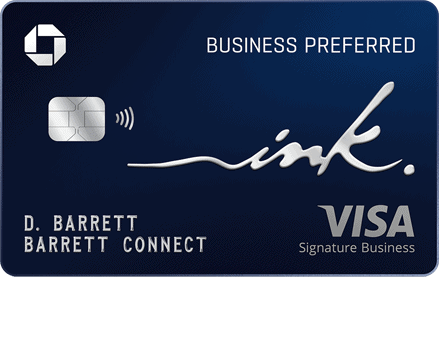
Chase Ink Business Preferred® Credit Card
90,000 bonus points after you spend $8,000 spend in 3 months.
Tuition Fee Payments Might Harm Your Credit Score
A less-considered aspect of paying your tuition fees with your credit card is how it affects your credit utilization ratio.
Your credit utilization ratio is essentially a measure of how much of your available credit you’re using. The optimum credit utilization ratio is less than 30%. So, if charging tuition fees on your card will increase your credit utilization ratio above 30%, this may damage your credit score in the long run.

Final Thoughts
Paying tuition fees with your credit card can pay off big time. You can redeem welcome and spending threshold bonuses, earn points, travel perks and build your credit history all while doing so. If your child is the one attending college, then it’s also an invaluable opportunity for them to learn about credit card benefits and build their own credit score.
However, there are two considerations to make before jumping into anything.
Firstly, can you pay off your balance in full on time? If not, charging tuition fees on your credit card will cost you far more than you’ll get back in points redemptions and other perks.
And secondly, will you earn more in rewards than you’ll pay in credit card processing fees? You’ll need to select a card with a strong point earning rate on non-special category spending and a lucrative welcome bonus.
If the answer to both these questions is yes, then paying your tuition fees using a credit card will only benefit you.
One final note: many business credit cards were mentioned in this article. If you don’t think you qualify for a business credit card, you might be wrong! Take a look at this article about how to qualify for a business credit card to learn more.


